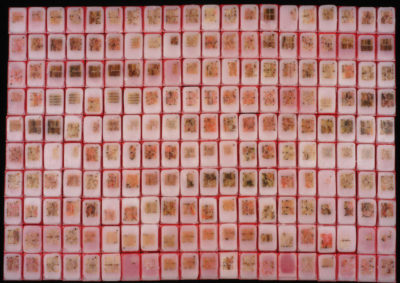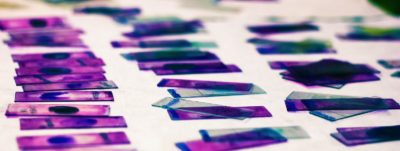
Our Consult Physicians
The Johns Hopkins Gynecologic Pathology Consultation Service is staffed by 2 faculty pathologists with experience in gynecologic pathology. This service is offered for pathologists desiring assistance with cases, as well as for clinicians and patients wanting a second opinion.
Required Materials
The following materials and information are required for all consultations:
- Glass slides (histologic sections), either original or recut sections
- Copy of original pathology report(s) and any consultation reports
- Pertinent clinical history provided in accompanying documents such as the pathology report, clinic notes, operative notes, or a letter
- Issues to be addressed in the consultation (if more than the routine diagnosis is desired)
- Billing information (either referring institution or patient's insurance information)
- Representative paraffin block(s) or unstained slides (*see below for details) for tumors and other lesions likely requiring ancillary studies (e.g. immunohistochemical analysis) for diagnosis.
All materials should be sent to:
Gynecologic Pathology Consultation Service
Johns Hopkins Medical Laboratories
550 N. Broadway
8th Floor, Room 810
Baltimore, MD 21205
Phone: 410-955-2405
Fax: 410-367-2404
Guidelines for Multi-Part Cases
For cases with multiple parts and staging specimens, the efficiency of the entire consultation process will be improved by following these recommendations:
- If staging specimens (e.g. omentum, peritoneal biopsies, lymph nodes, etc.) are negative and do not require review, omit these slides from the material sent for consultation.
- If cytology specimens are negative or do not affect staging and do not require review, omit these slides from the material sent for consultation.
- If certain parts of a case are not relevant to the specimen part for which consultation is requested (e.g. there are benign findings not related to the main specimen), omit these slides from the material sent for consultation.

Paraffin blocks
*Paraffin blocks are preferred for most cases, particularly those involving tumors that are difficult to classify and will likely need multiple immunohistochemical stains and possibly molecular analysis. If unstained slides are provided in place of paraffin blocks for such cases, the submitting laboratory should be prepared to provide numerous slides (at least 10 but ~20-25 or more might be needed) when comprehensive ancillary testing is required to establish a diagnosis. These tissue sections must be submitted on plus charged slides. Our Immunopathology Laboratory recommends a white plus charged slide that is available from Cardinal Health. The catalogue number for the white plus slide is M6146-PLUS.
Paraffin blocks are required for certain diagnostic evaluations (see below).

Products of conception specimens to evaluate for possible hydatidiform mole
We perform diagnostic consultations and ancillary testing for evaluation of potentially molar products of conception specimens. We evaluate the glass slides and request one or more paraffin blocks (if not already provided with the slides) for ancillary testing. We require blocks that contain well-separated areas of villous and decidual tissue (the latter must be pure and free of any implantation site elements [fibrinoid material with intermediate trophoblastic cells]). We cut H&E slides and unstained sections according to a specific protocol. This protocol generates a 4-micron unstained slide for p57 immunohistochemical analysis and a series of 10- micron unstained slides (cut with PCR precautions) with flanking H&E slides for guiding macrodissection. Given the specifics of this protocol, we require paraffin blocks and cannot use routinely cut unstained slides from the originating laboratory. Once the block is cut in our Immunopathology Laboratory, p57 immunohistochemical analysis is used to triage cases for genotyping. For cases with appropriate morphology, diagnosis of complete hydatidiform mole is rendered when p57 is negative and satisfactory. These cases are not routinely genotyped but can be if requested by the contributing laboratory or will be if specific circumstances require genotyping to establish or confirm the diagnosis. All p57-positive cases are subjected to genotyping in our Molecular Diagnostics Laboratory. Satisfactory results are obtained in our laboratory in >95% of cases. Testing is performed generally twice a week. Given this schedule of testing, results are generally available by 5-7 working days from the time of accessioning into the molecular laboratory, unless technical factors necessitate repetition of the analysis. This is a clinical test, validated in our laboratory and billed according to the procedures performed. The diagnostic consultation and p57 immunohistochemistry are billed as 88323 + 88342 by our consultation service and the molecular genotyping is billed with a series of CPT codes applied by the Molecular Diagnostics Laboratory and billed through the Department of Pathology.
To obtain a printed version of this page, please click the button below.


